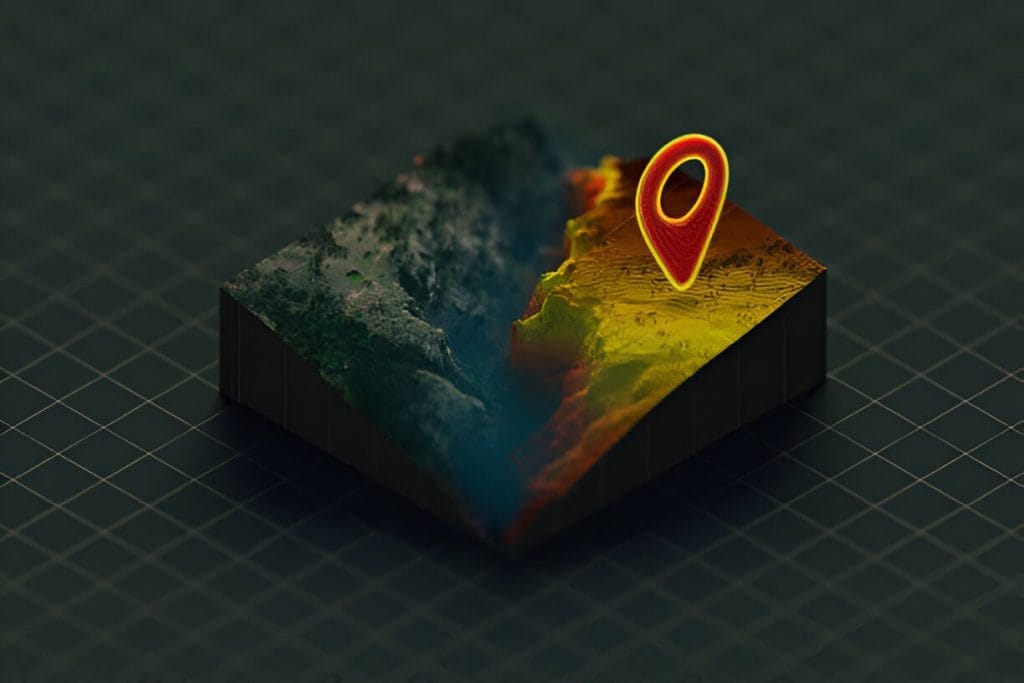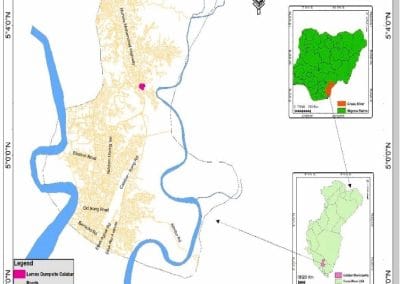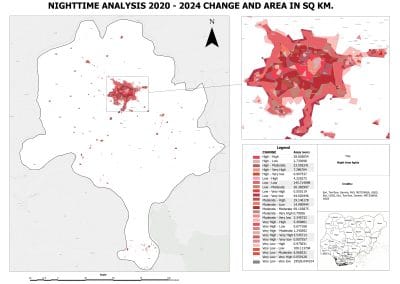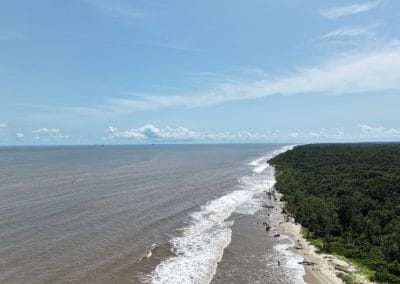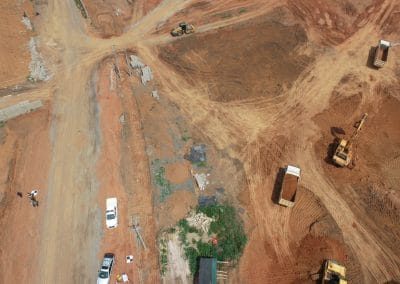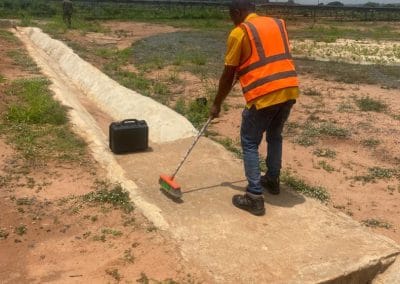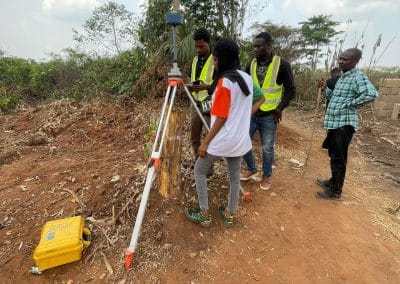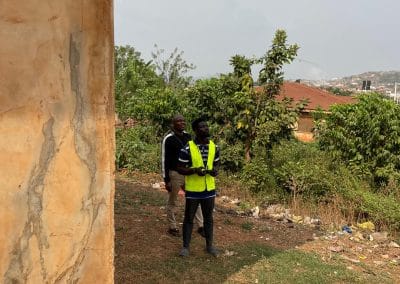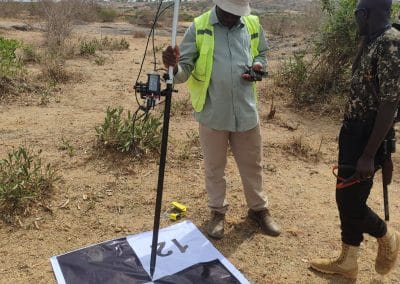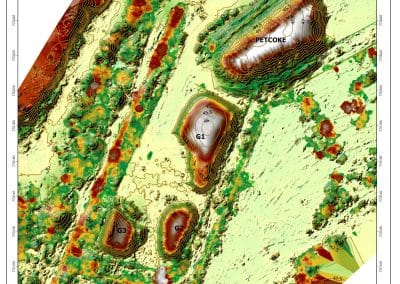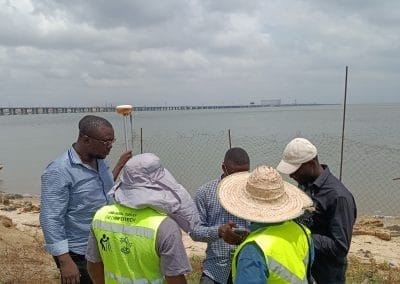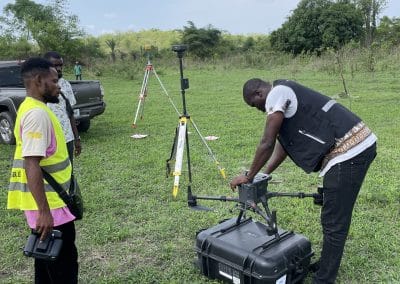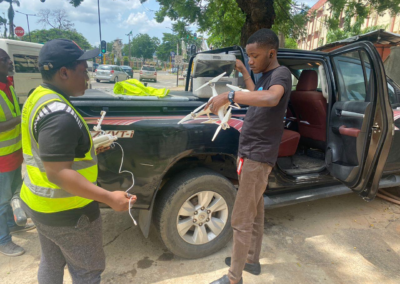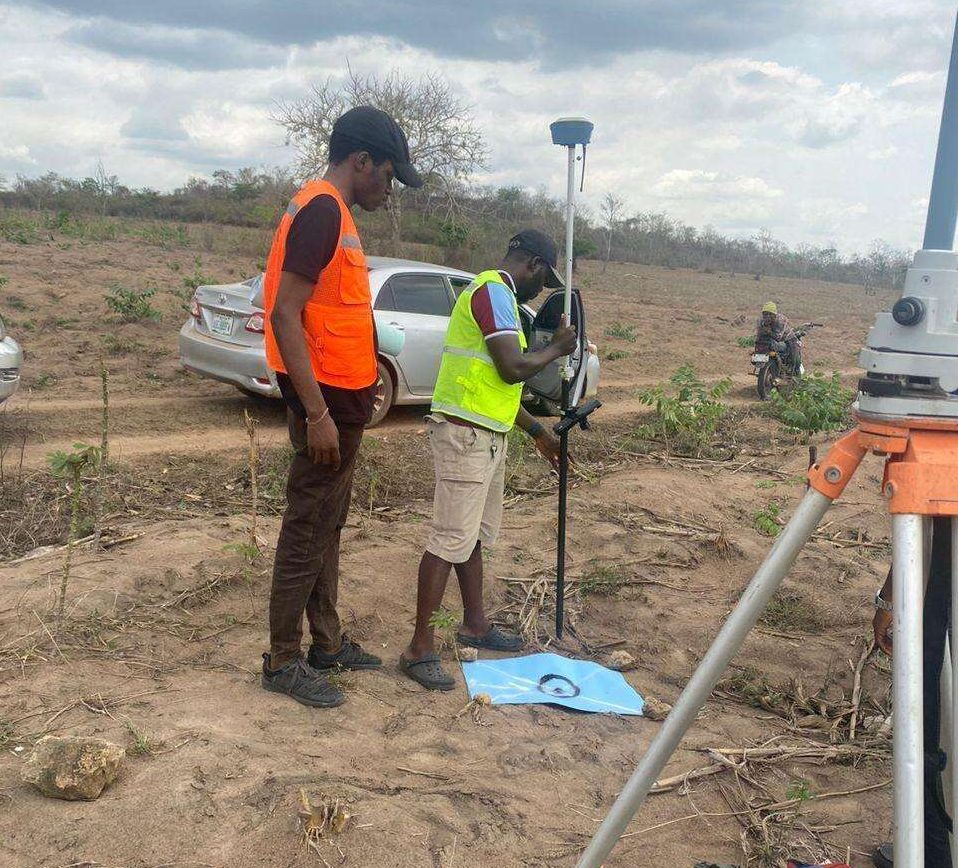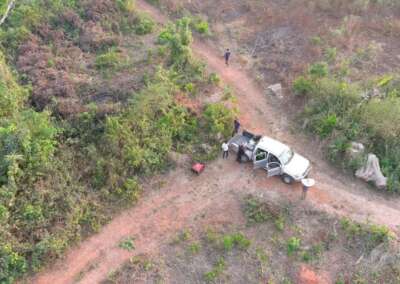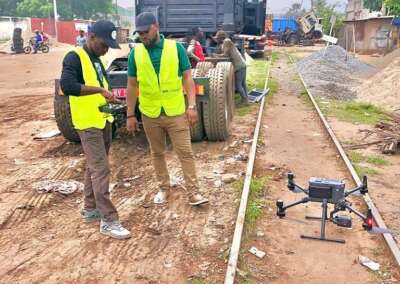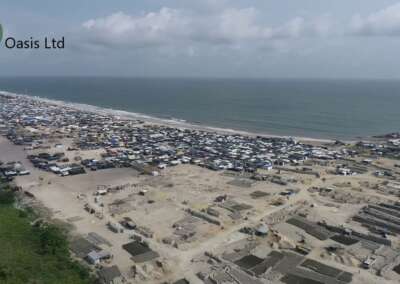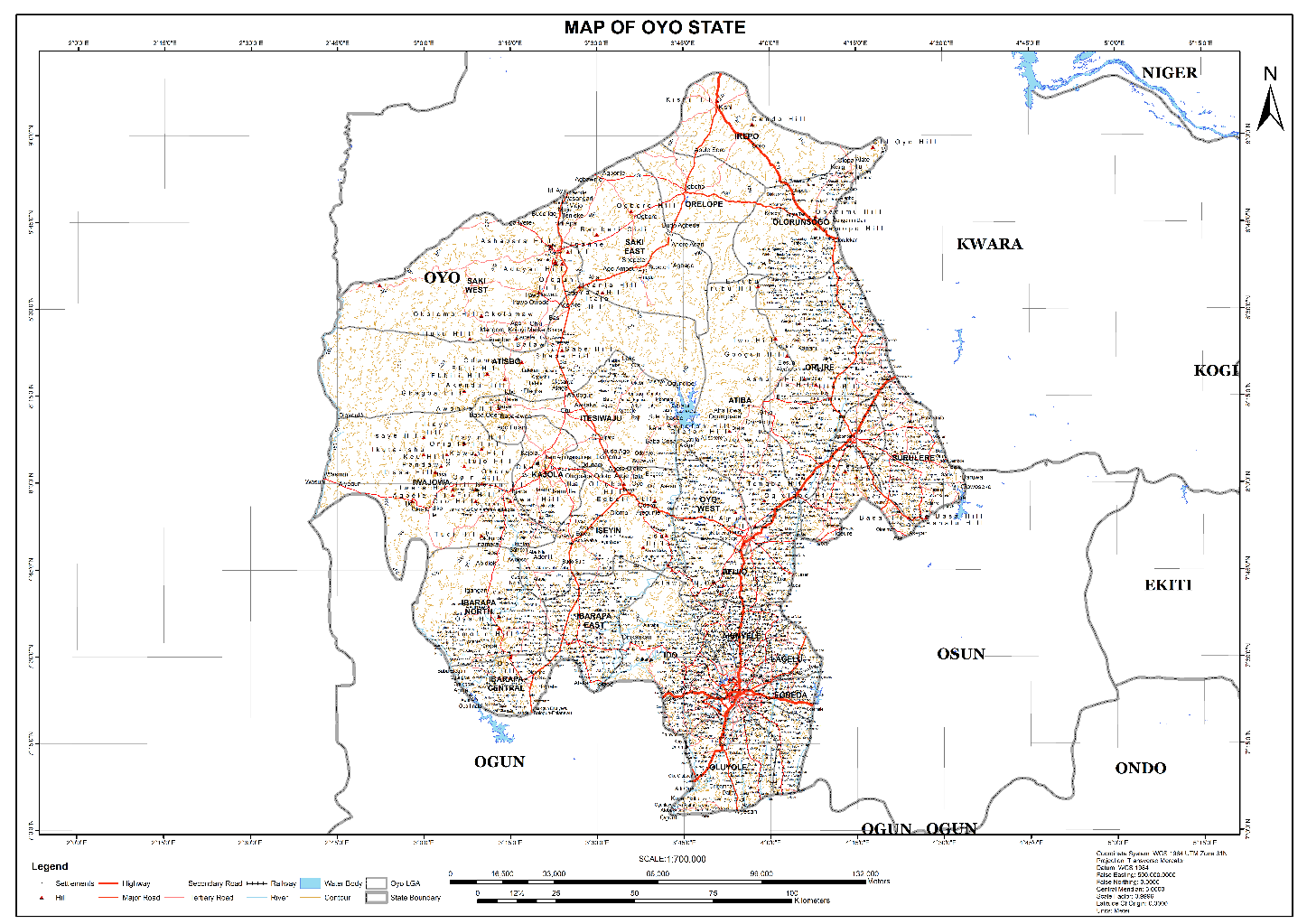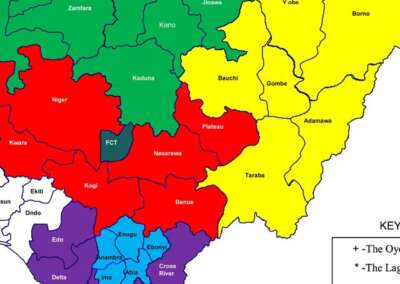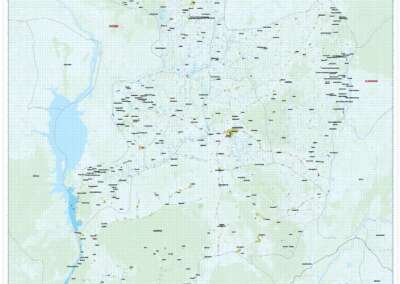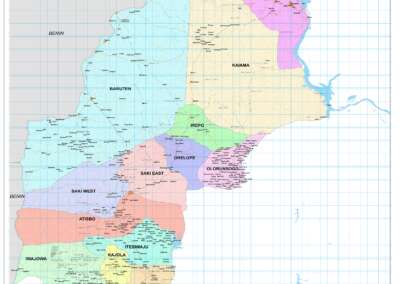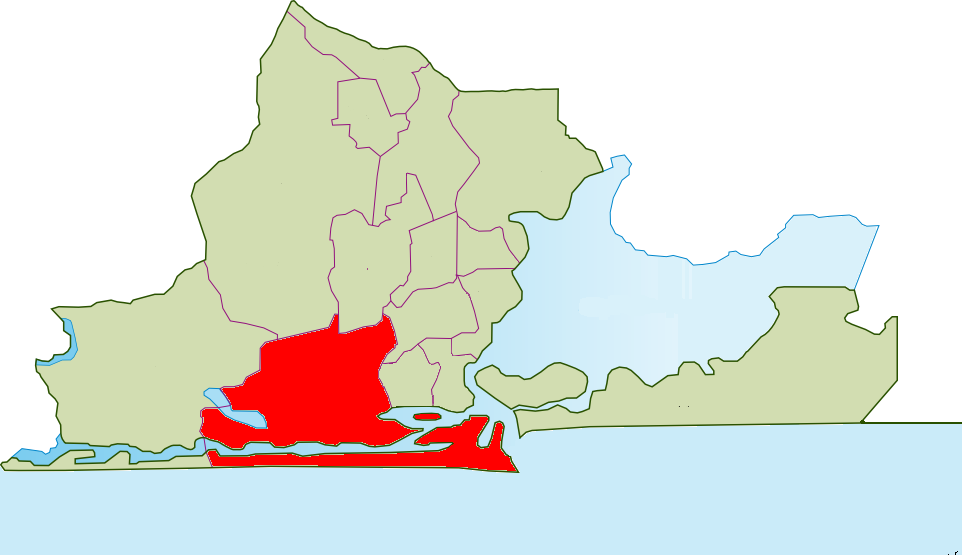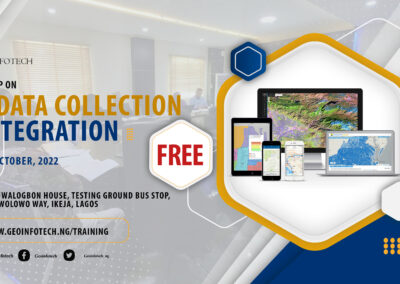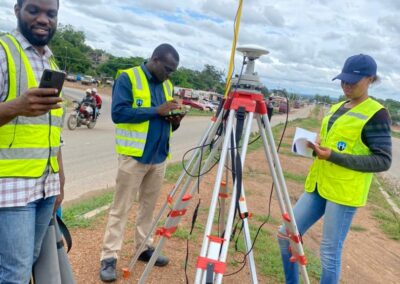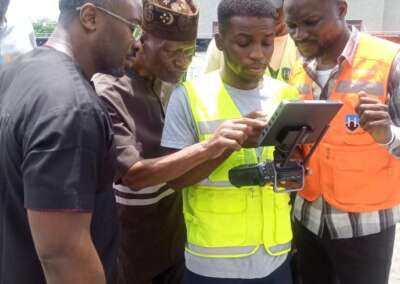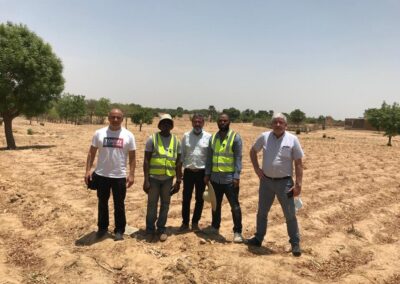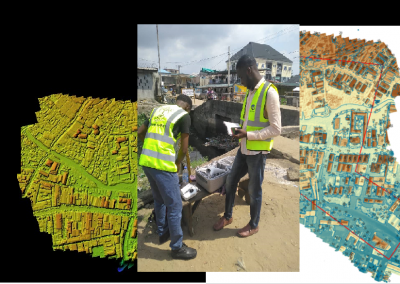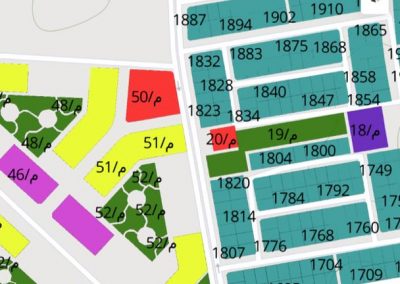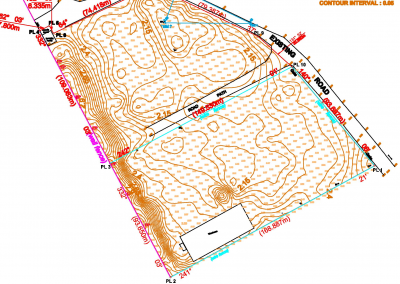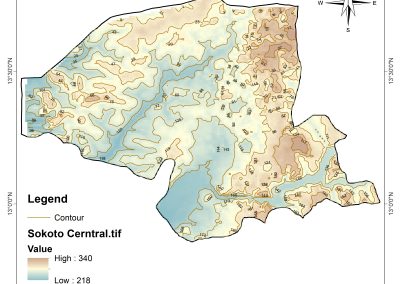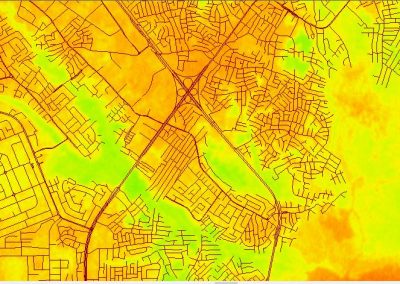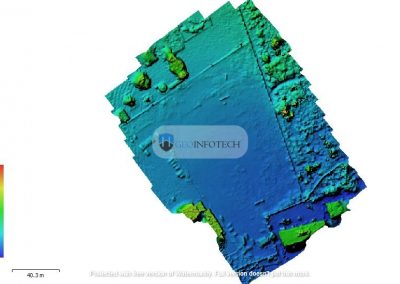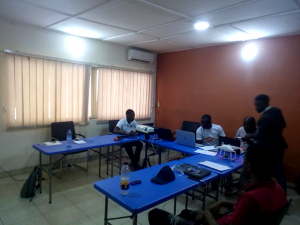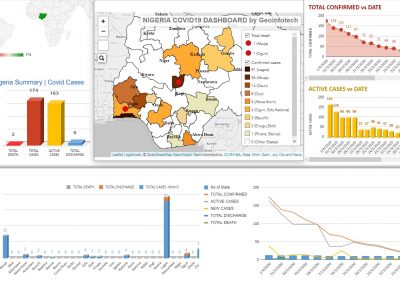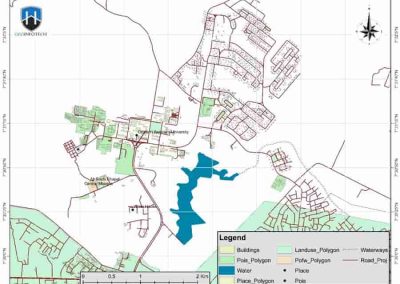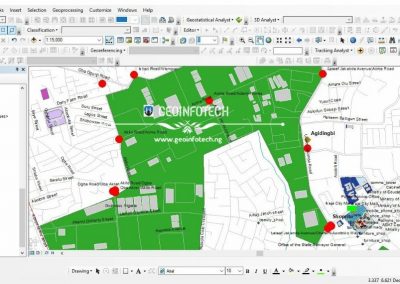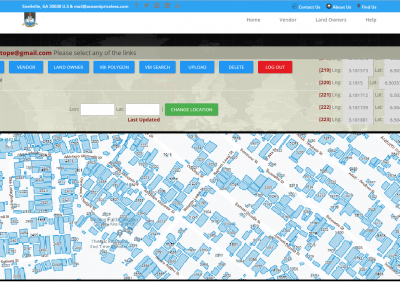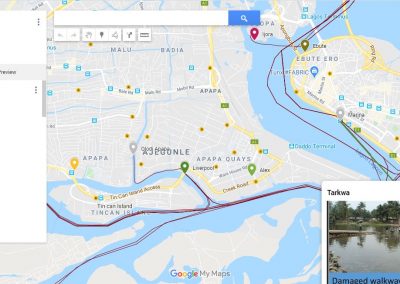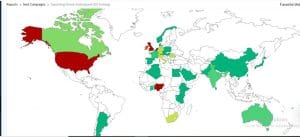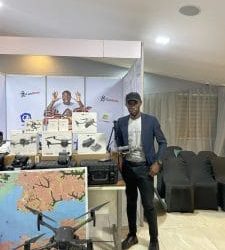In today’s world, information is more powerful when it’s tied to a location. That’s exactly what GIS (Geographic Information Systems) makes possible. From urban planning in Lagos to disaster management in Abuja, GIS in Nigeria is helping government agencies, private companies, and communities make smarter, data-driven decisions.
At Geoinfotech, we specialize in providing GIS solutions in Nigeria that span multiple sectors, including land surveying and mapping, agriculture, oil and gas, transportation, and environmental management.
What Is GIS?
GIS stands for Geographic Information Systems. Simply put, it’s a digital system that captures, stores, analyzes, and displays data related to locations on Earth.
With GIS, you can combine maps with various types of information, such as population data, soil type, road networks, rainfall, or property ownership, to reveal patterns, trends, and relationships.
In Nigeria, where land use, population growth, and infrastructure development are major concerns, GIS has become a vital tool for planning and decision-making.
How GIS Is Used in Nigeria
1. Urban Planning and Smart Cities
In growing cities like Lagos, Abuja, and Port Harcourt, GIS helps planners manage land use, design efficient road networks, and avoid chaotic development.
2. Land Administration and Surveying
GIS works in conjunction with land surveys in Nigeria, facilitating the maintenance of accurate land records, preventing disputes, and supporting land registration.
3. Agriculture and Food Security
With GIS and remote sensing, Nigerian farmers can monitor crop health, manage irrigation, and apply fertilizers more effectively. This is often referred to as smart agriculture.
4. Oil, Gas, and Mining
The oil and gas industry uses GIS for pipeline routing, asset management, and environmental monitoring. Mining companies use it to map mineral deposits across Nigeria.
5. Disaster and Environmental Management
GIS is a powerful tool for flood mapping, erosion monitoring, and disaster preparedness—issues Nigeria faces regularly.
6. Transportation and Logistics
From traffic management in Lagos to nationwide delivery systems, GIS ensures that routes are optimized and transport systems remain efficient.
7. Health and Education
GIS supports health agencies by mapping disease outbreaks, vaccination coverage, and access to healthcare. In education, it is used for school mapping and planning.
Why GIS Is Important for Nigeria’s Development
- Better Decision-Making – GIS gives policymakers reliable data before they act.
- Efficient Resource Allocation – It helps direct resources (land, money, manpower) where they’re most needed.
- Economic Growth – From agriculture to oil and gas, GIS helps industries reduce costs and increase productivity.
- Transparency and Accountability – With open GIS data, citizens can hold governments and organizations accountable.
Challenges of GIS Adoption in Nigeria
Despite its benefits, GIS adoption in Nigeria faces some hurdles:
- High cost of data acquisition and software
- Lack of technical expertise in some organizations
- Limited awareness among policymakers and the general public
- Poor infrastructure in some rural areas that need GIS the most
At Geoinfotech, we bridge these gaps by offering affordable GIS training, mapping services, and custom GIS software development tailored to Nigeria’s needs.
How GeoInfotech Is Driving GIS in Nigeria
As a leading geospatial solutions company, GeoInfoTech is at the forefront of GIS adoption in Nigeria. Our services include:
- GIS training programs for students, professionals, and government staff
- Custom GIS software and mobile app development
- Drone mapping and remote sensing for agriculture, construction, and land management
- Smart agriculture solutions powered by GIS analytics
- GIS consulting for urban planning, oil and gas, and environmental monitoring
We don’t just provide technology, we provide practical solutions that help clients solve real-life challenges.
FAQs About GIS in Nigeria
- Is GIS used in everyday life in Nigeria?
Yes. From Google Maps for navigation to estate developers using GIS for land management, it’s already part of daily life. - 2. Do I need special training to use GIS?
Basic GIS applications are easy to use, but professional GIS requires training. That’s why GeoInfo Academy offers structured training programs. - How much does GIS training cost in Nigeria?
Costs vary depending on the program, but at GeoInfoTech, we provide affordable packages for students, corporate staff, and government workers. - Can GIS work with drones?
Absolutely. Drones capture aerial images that can be processed in GIS to generate accurate maps and analysis. - What industries use GIS most in Nigeria?
Top industries include oil and gas, real estate, agriculture, transportation, and government planning agencies.
GIS in Nigeria is no longer optional; it is the future of decision-making, planning, and development. Whether it’s reducing traffic in Lagos, managing farmlands in Kaduna, or monitoring pipelines in the Niger Delta, GIS is changing the way Nigeria works.
At Geoinfotech, we are proud to be part of this transformation by delivering GIS solutions, training, and technology to individuals, businesses, and government agencies.
Contact us today or visit www.geoinfotech.ng to learn more about our GIS services in Nigeria.






